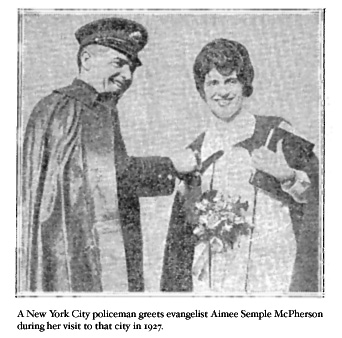November 27, 1927
Los Angeles
Did you hear the one about the traveling salesman and the farmer’s daughter? Well, this time she wasn’t a farmer’s daughter—and the salesman ended up dead. Eleven days ago, 17-year-old Marie Hull went for a ride with Gordon J. Waters, 29, the salesman in question. When she returned home to 840 West 43rd Place, Marie tearfully told her mother that Waters had attacked her.
When Hazel Hull discovered Waters at her boarding house tonight, presumably to call on Marie, she was ready. When the salesman left the house, Hull rushed after him and pressed a .38 caliber revolver to his left side. She fired a single shot, then fled to her mother’s. Waters staggered to the intersection of Hoover Street and Vernon Avenue, where he collapsed. He died on the way to Georgia Street Receiving Hospital without making a statement.
Days of juicy reading followed. Booked into County Jail prior to the coroner’s inquest, Hazel Hull told reporters, "I am glad I killed him even though I hang for it. My little girl was sweet and good. I did the only thing I could to avenge her." Her ex-husband proclaimed his willingness to stand by his former wife’s side, and Marie asserted that if her mother "had not shot him I would have done so myself."
Meanwhile, Waters’s widowed wife of six months ("heavily veiled in a great pink chiffon drape that completely covered her head and shoulders," according to the Times) took issue with the Hulls’ insistence that her husband had been "a sheik" and "a rounder." She preferred to blame the other victim: "Marie Hull led my husband on. She knew he was married." This was a minority view, however; when the coroner’s jury announced their finding that Hazel Hull was justified in shooting her daughter’s attacker, applause broke out in the court room, and spectators rushed to shake Hull’s hand. The following day, Hull escaped a murder charge when the grand jury refused to indict her.
Despite the column inches it devoted to the case, the Times editorialized that "If Waters’s conduct was indefensible, there seems even less defense for that of Mrs. Hull" and likened the juries’ refusal to indict as an "indorsement [sic] of lynch law."






